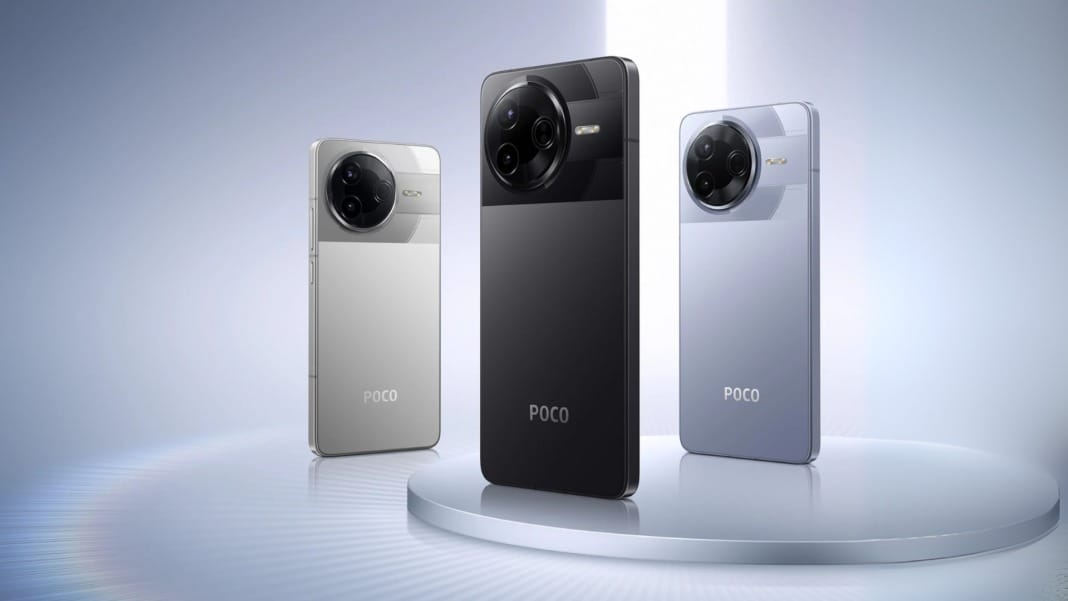The Poco F7 Pro aims to bring flagship-level features to the mid-range segment, offering high-end specs at a far more affordable price point. In a market crowded with premium smartphones, Poco continues to carve out its niche by delivering solid performance, a capable camera, and now, a larger battery while staying budget-friendly.
This time, the Poco F7 Pro leans more heavily into what fans value most: performance and battery life. It runs on Qualcomm’s Snapdragon 8 Gen 3 chipset, a processor that powered last year’s top-tier flagships. It also adds some of Xiaomi’s latest HyperOS 2 and HyperAI features, making the user experience feel fresh and modern. However, it’s important to note that the Pro variant now sits below the new Poco F7 Ultra in the lineup, which brings even more premium features like a Snapdragon 8 Gen 3 Elite chip and a telephoto camera.
| Specification | Poco F7 Ultra | Poco F7 Pro |
|---|---|---|
| Processor | Snapdragon 8 Gen 3 Elite (3nm), 2× Prime Cores up to 4.32GHz | Snapdragon 8 Gen 3 (4nm), 1× Prime Core up to 3.3GHz |
| RAM and Storage | 12GB+256GB, 16GB+512GB (LPDDR5X, UFS 4.1) | 12GB+256GB, 12GB+512GB (LPDDR5X, UFS 4.1) |
| Display | 6.67″ WQHD+ Flow AMOLED, 3200×1440, 120Hz, POCO Shield Glass | 6.67″ WQHD+ Flow AMOLED, 3200×1440, 120Hz, Gorilla Glass 7i |
| Rear Camera | Triple Camera (50MP main + 50MP telephoto + 32MP ultra-wide) | Dual Camera (50MP main + 8MP ultra-wide) |
| Front Camera | 32MP | 20MP |
| Battery | 5300mAh | 6000mAh |
| Charging Speed | 120W wired, 50W wireless | 90W wired, no wireless |
| Weight | 212g | 206g |
| Security | Ultrasonic in-display fingerprint sensor, AI Face Unlock | Ultrasonic in-display fingerprint sensor, AI Face Unlock |
| Operating System | Xiaomi HyperOS 2 | Xiaomi HyperOS 2 |
It offers storage configurations of 12GB RAM with either 256GB or 512GB. With a launch price starting from S$669, it enters the market at nearly a third of the cost of ultra-premium competitors like the Samsung Galaxy S25 Ultra or the Xiaomi 15 Ultra. This positions it as a value-driven alternative for users who want strong performance without breaking the bank.
Design and display deliver substance over flash
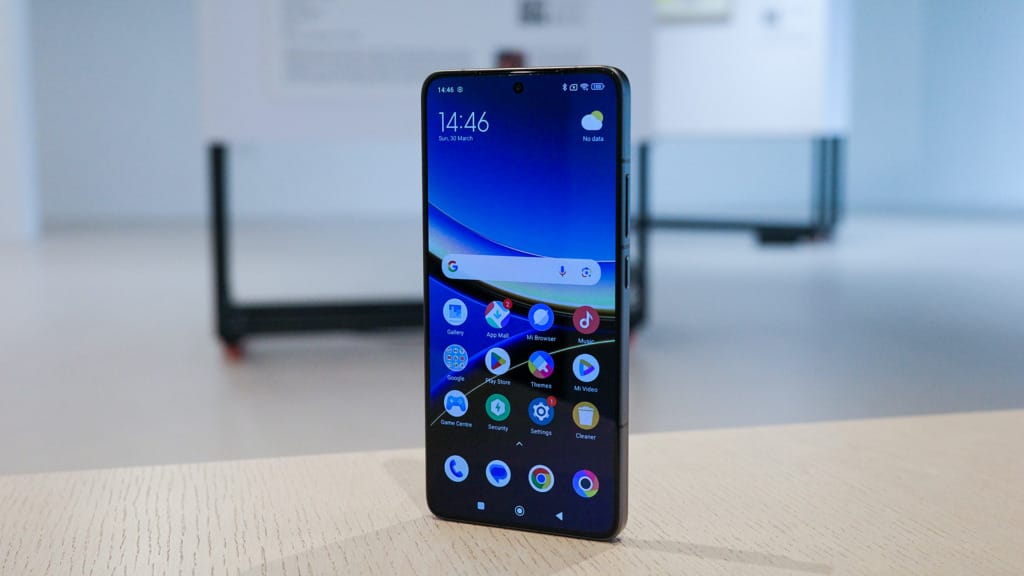
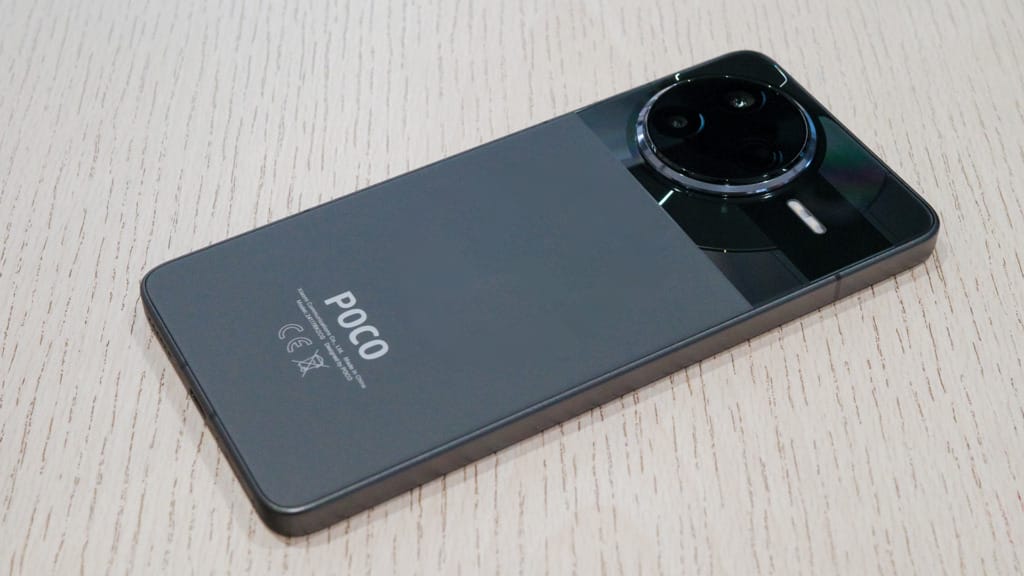
The Poco F7 Pro doesn’t go overboard with its looks, which works in its favour. Its dual-tone finish on the rear stands out, offering a glossy upper section paired with a matte lower half. While this contrast may not be to everyone’s taste, it gives the phone a more distinct personality than many others in its price range. The device also feels sturdy in hand, with a well-balanced weight distribution and a thickness of just 8.12mm, making it comfortable to hold over extended periods. Build quality is excellent for a phone at this price point.

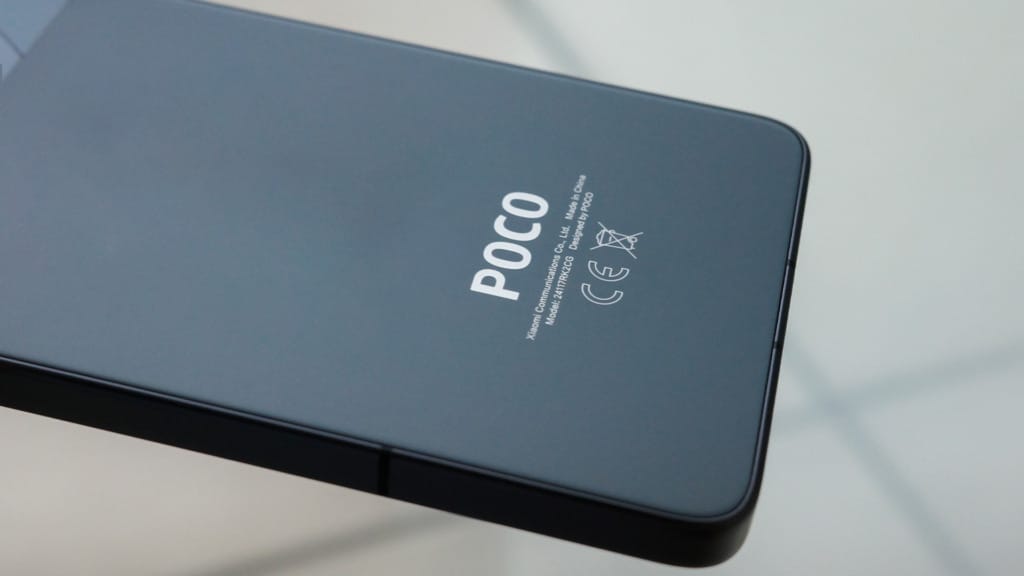
The Gorilla Glass 7i protection on the front adds a reassuring sense of durability. The phone also has an IP68 rating for water and dust resistance, which is still relatively rare for mid-range models. Rounded corners and a flat frame give it a modern aesthetic, and the tactile feedback from the volume and power buttons is snappy and precise.
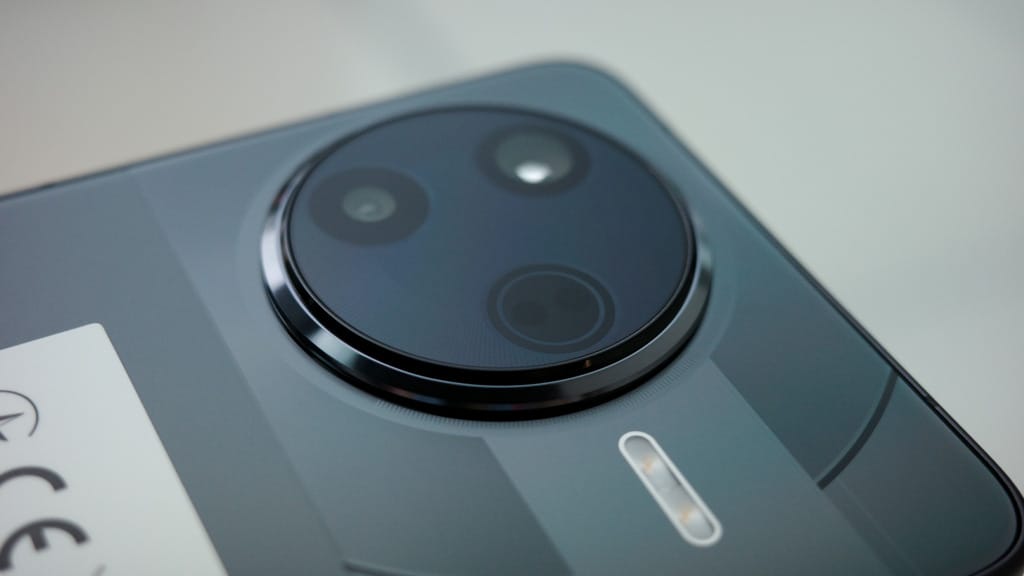
The Poco F7 Pro comes in three colours: blue, silver, and black. All three look sleek, with the glossy-matte split giving each colour variant its own personality. While some users may prefer a more uniform finish, the bundled black silicone case does a decent job of toning down the rear design if needed. The overall form factor and weight of 206g are fairly standard for phones in this size class.
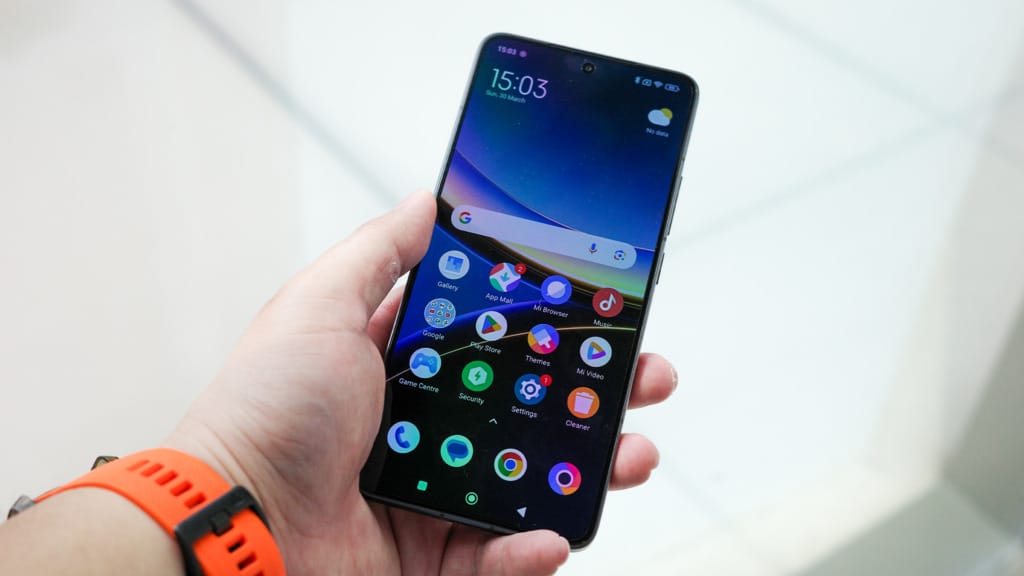
The 6.67-inch Flow AMOLED display is a standout. With a resolution of 3,200 x 1,440 and a refresh rate of up to 120Hz, visuals appear incredibly sharp and fluid. Peak brightness reaches an impressive 3,200 nits, which means even under Singapore’s midday sun, you’ll have no trouble reading the screen. The inclusion of Dolby Vision and HDR10+ support brings video content to life with excellent contrast and vibrant colour reproduction.
Performance and gaming are surprisingly strong
Powered by the Snapdragon 8 Gen 3 processor, the Poco F7 Pro delivers performance that easily keeps up with daily tasks, productivity apps, and even heavy gaming. It’s backed by 12GB of LPDDR5X RAM and UFS 4.1 storage, ensuring smooth multitasking and quick file access.
Where it shines is gaming. Poco has introduced WildBoost Optimisation 4.0, which includes software enhancements like Smart Frame Rate and Super Resolution. Genshin Impact, one of the most demanding mobile games, runs at up to 90fps on supported settings.
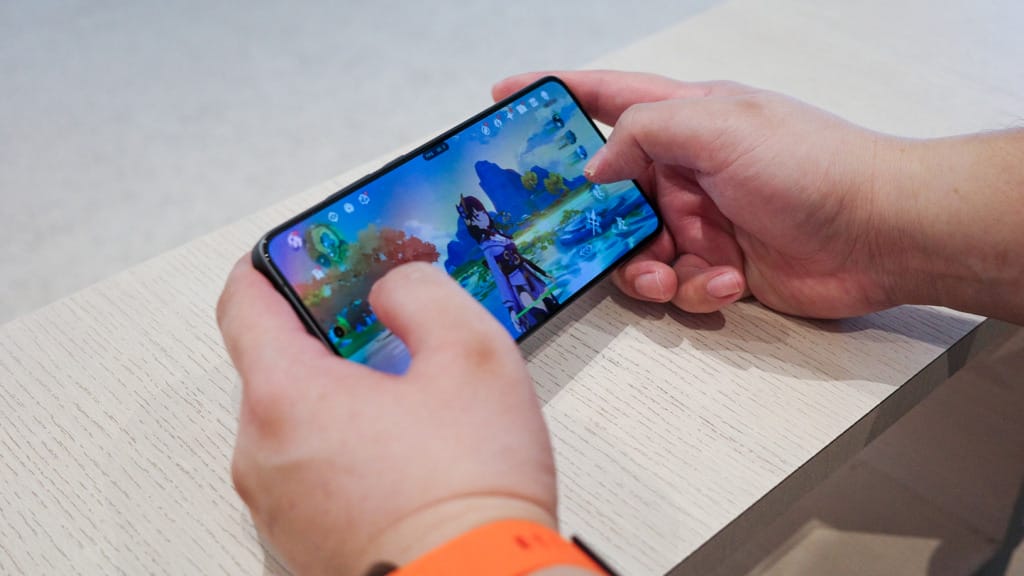
Outside of gaming, everyday use feels snappy and responsive. App launches are near-instant, animations are fluid, and switching between tasks is smooth. HyperOS 2 brings some AI-powered enhancements like Circle to Search and AI Writing. These are useful in theory, though they still rely heavily on a stable internet connection and feel more like early-stage tools rather than everyday essentials.
One drawback is thermal control. The phone tends to run warmer than some rivals under load. It doesn’t become too hot to handle, but the heat is noticeable during long gaming sessions or video rendering. Although the phone does warm up during extended play, it stays manageable and doesn’t throttle performance drastically.
Camera captures vibrant city scenes with ease
The Poco F7 Pro’s camera setup is simple but effective. It removes the 2MP macro lens found in its predecessor and keeps things focused with a 50MP main sensor and an 8MP ultra-wide camera. On the front, a 20MP selfie camera handles video calls and social media shots well.

Photos taken with the main camera are sharp and vibrant. The Light Fusion 800 sensor does a good job in daylight, delivering rich colours and good detail. Real-world use around Joo Chiat and Katong clearly shows the Poco F7 Pro’s strengths. The rich red hues of the shophouse along Joo Chiat Road were captured naturally without pushing colours too far. Details in the building’s windows, balconies, and surrounding plants stayed crisp even when zoomed in slightly. The dynamic range also handled the cloudy sky reasonably well without losing too much texture.


The camera was effective in capturing the pastel-coloured terrace houses, fitting more of the vibrant row into a single frame. Although the intricate designs on the building facades, like carvings and ornaments, were slightly less defined, the strong colour accuracy helped the images stay attractive.


The camera managed contrast nicely by shooting along the covered walkway outside Olsen Bakehouse. The white walls and black fittings stayed clean and detailed without overexposing areas. This highlights how well the phone balances highlights and shadows in uneven lighting, making it suitable for casual street photography or travel shots.
Video recording is solid, supporting up to 8K at 24fps, though most users will likely stick to 4K at 60fps or 1080p for everyday sharing. Handy extras like Dual Video mode and a built-in teleprompter make the F7 Pro a practical option for vloggers. The 20MP front-facing camera also performs well, producing sharp selfies with good exposure, especially when shooting against lively backdrops like Katong’s iconic streets.
Battery life is the real winner here
One of the Poco F7 Pro’s biggest strengths is its improved battery life. The 6,000mAh battery is a notable upgrade, offering reliable all-day performance. In tests, it lasted about 11 hours and 25 minutes, a big step from its predecessor’s result of just under 8 hours.
With light to moderate use—browsing, streaming, and messaging—the phone can comfortably last a day and a half without needing a charge. Even with heavy gaming or frequent video recording, it usually makes it through the day. This kind of endurance is particularly valuable for users who are often on the go and don’t want to carry a charger everywhere.
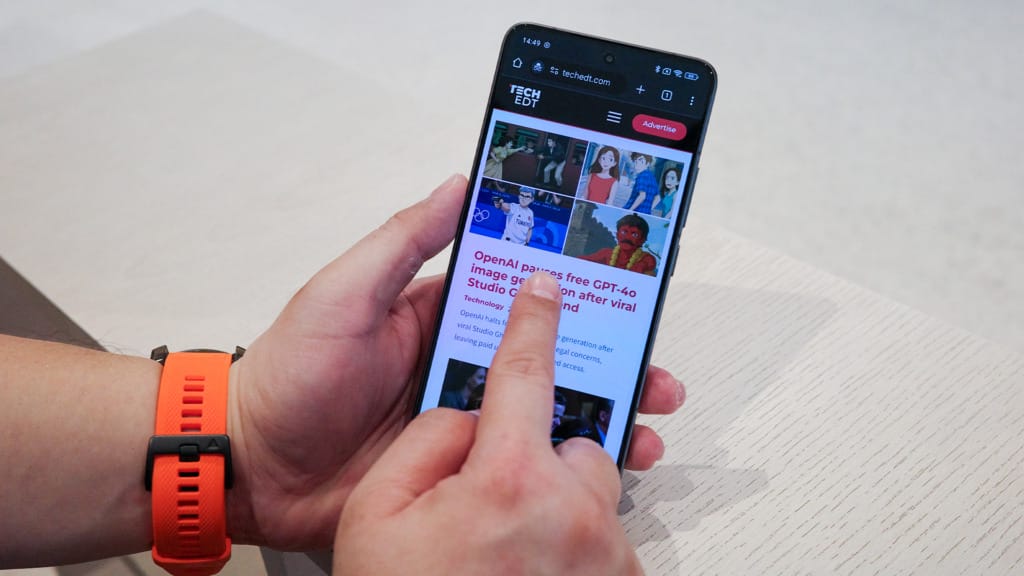
The charging speed is still decent, although the phone now supports 90W wired charging instead of the 120W in the previous model. In practice, it takes just under 40 minutes to fully charge, which is more than acceptable. The change seems like a conscious decision by Poco to differentiate the Pro from the new Ultra variant.
Wireless charging is still absent, which might be a let-down for some. However, at this price point, it’s understandable. Poco has included a fast charger in the box, which many brands no longer do. Combined with smart power management features, the battery experience is easily one of the best in the mid-range segment.
The verdict: Poco F7 Pro
The Poco F7 Pro strikes a fine balance between performance, battery life, and value. It doesn’t try to be everything, but it gets the fundamentals right. The large, vibrant display, strong performance for gaming and everyday use, and generous battery life make it an appealing option for a wide range of users.
Its design won’t suit everyone, but it does stand out, especially with the dual-tone finish. Camera performance is solid for the price, though it lacks the flexibility of phones with telephoto or periscope lenses. The new AI features are interesting, even if they still feel like a work in progress.
What makes the F7 Pro most appealing is how much it offers at its price. For those looking for a phone that performs like a flagship without the flagship cost, the Poco F7 Pro is a smart pick.
